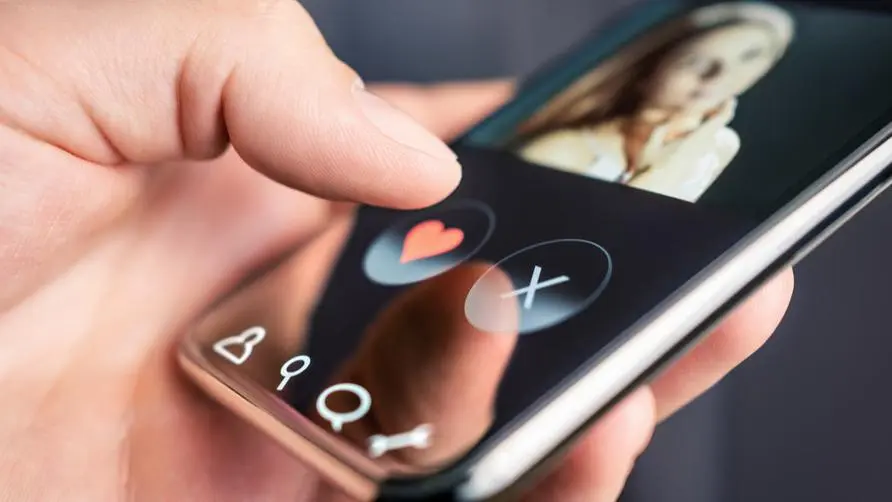It's not useful if you rush to pay for the meal! Research reveals a sure-fire strategy for a second date: 2 tricks to significantly increase your favorability

If you have successfully dated your romantic partner once, how can you increase your chances of success on the second date? A recent study published in “Sexuality & Culture” shows that eye contact and specific body language on the first date may indeed increase the other party’s attendance rate on the second date; interestingly, the research team in the experiment Incorporate content from “reality programming” as part of the research results.
It doesn’t matter if you rush to pay for the meal! Study reveals winning strategies for second dates
The study was initiated by James B. Moran, Ph.D. in Health Education and Behavior at the University of Florida. The research team conducted three sub-studies of a certain scale to better clarify the behaviors that are conducive to second dates. In the first study, the team recruited 100 subjects and asked them to list five behaviors that people of the same gender could do on a first date to increase their chances of a second date.
Among them, the top four strategies nominated by men are “talk deeply”, “pay for dates”, “maintain a sense of humor” and “maintain eye contact”. The top four strategies nominated by women were “telling jokes or being funny”, “keep asking questions and being curious”, “be polite and respectful”, and “dress and make up appropriately”. To evaluate the effectiveness of the above actions, the team immediately launched a second study: this time recruiting 131 subjects.
Participants in the second study were asked to rate the eight behaviors listed above. The results showed that men and women had completely different views on whether the above behaviors would increase their liking for each other on a first date. In the second study, eight behaviors were broken down into three broad categories: “politeness,” “engagement,” and “behavior appropriateness.”
Men believe that women who are “highly involved” during dates (e.g., eye contact, good body language, smiling, and asking good questions) are more likely to get a second date; on the other hand, women who are “highly polite” (e.g., Men who show kindness, care, and listening are more likely to get a second date. Essentially, men value women who “show interest in them and engage in physical or flirtatious behavior,” while women value men who “display kindness and appropriate social behavior.”
Is it useless to learn about dating and picking up girls by watching reality shows? Experts reveal: highly inconsistent with realistic conditions
In the third study, the research team used Netflix’s reality show “Dating Around” to assess whether people on second dates actually used eight bonus behaviors. In each episode of the show, the protagonist will go on different dates with 5 people of the opposite sex. In the end, the protagonists will choose the person of the opposite sex they want to go on a second date with.
The team coded content segments from a total of 12 episodes for elements such as politeness, humor, asking questions, and kissing, and conducted logistic regression analysis to determine whether these behaviors had an impact on second dates. The results showed that there was no significant correlation between the eight bonus behaviors considered by the subjects and the success rate of the second date of the protagonists in “Dating Kaleidoscope”.
Why does this result occur? Moran believes that reality shows such as “Dating Kaleidoscope” often have their own scripts and are post-produced and edited to create entertainment content. Therefore, the show may not accurately reflect real-life dating experiences. In other words, the third study shows a disconnect between what people think works on a first date and what actually works on a second date.
Moran pointed out that comparing the results of the three studies, it can be found that the behaviors that people actually think are extra points on dates are different from the behaviors that are subjectively believed to be extra points and the results presented in film and television works. “Men prefer women who are more engaged on dates, but women prefer men who are more polite on first dates. These behaviors appear to reflect different mate preferences and sexual strategies between men and women.”
When looking for a partner, you can’t just look at the “Three Views”? “24 Conditions” The closer we are, the happier we are together
If you want the other person to go on the second date, you can also check whether your conditions match the other person’s, and the chance of developing a romantic relationship in the future will be higher. The study “Personality and Individual Differences” points out that the closer the “24 conditions” are to the person you are dating, the higher the chance that you will become a romantic partner with them in the future, and your happiness will increase after being together.
The 24 conditions are: lifestyle, outlook, emotional state, birth background, sociality, romantic personality, moral values, family situation, eating habits, perceptual ability, social class, religious beliefs, herd behavior, leisure hobbies, appearance, Work style, conflict resolution, empathy, sense of humor, place of residence, conversation skills, intelligence, enthusiasm, and activity participation.
If further distinguished by gender, men are more concerned about similarities in “emotional state” and “activity participation,” while women are more concerned about similarities in lifestyle, opinions, morals, conformity, appearance, and empathy. Research suggests this is because women traditionally invest more in raising children and are therefore more selective in their choice of partners. The more of the above characteristics, the greater the chance of becoming a potential partner.
Source:
Extended reading:





